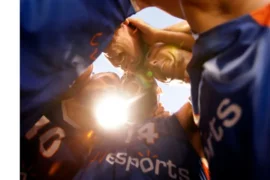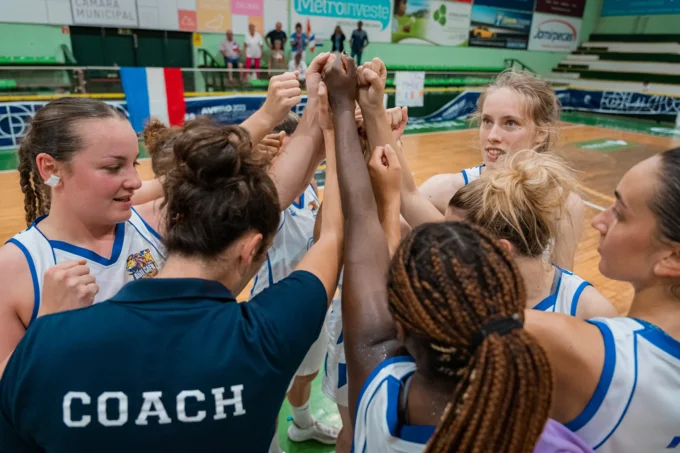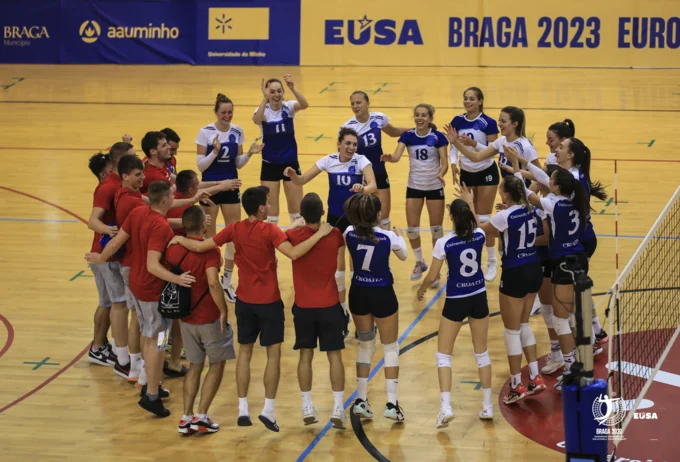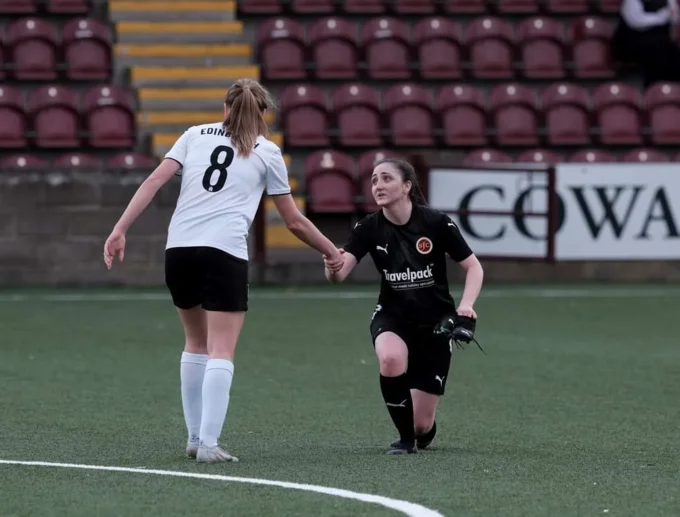What's up: Community in Sport

In this month’s What’s up student column EUSA European Solidarity Corps volunteer Jennifer Campbell focuses on the topic of Community in Sport, expressing her views and personal experiences. She has build this article on answering a few points related to creating and the meaning of community in sport.
What is the concept of “community”?
Community creates a sense of family, acceptance and belonging. In the oxford dictionary, Community is described as “A form of social, and often spatial, organization centered on common interests and/or a locale”. In reality, the sense of togetherness that is created from a community feels so much more powerful than just a “casual” organization of those with common interests. It can be one of the most valuable tools to feel empowered, motivated and positively challenged.
What does “community” mean to me?
My most formative experiences with sport have had community at the center of them. I have played team sport from a very young age and the impact of community became apparent to me when I was a student at University . I played for the Women’s University football team during my four year bachelor degree. Every year, I became more involved in the club; becoming first team captain before becoming involved in the running of events and finally becoming Treasurer of the club and being a part of the three committee leaders leading the club.
The relationships I built during my time there were the primary motivators that pushed me to become more involved in the club and strive to make the club bigger and better.
Sharing the common interest of winning matches, growing the capacity of the club and opportunity for women in sport created a real sense of unity and empowerment. The club really fed my passion for people, sport and organized fun.

How does having a community positively impact young people?
Encouraging children to play team sport from a young age is beneficial in so many ways. Sport has many positive mental and physical aspects; the social aspect and sense of community being some of them. Being a part of a supportive and collective environment can help children to grow their social-emotional skills and find healthy ways to process and navigate the harder sides of navigating socializing and emotions. With sport, comes the experience of victory and loss, agreement and disagreement, approval and criticism and communication challenges; these are all important life experiences. By introducing children from a young age to some of life challenges at a young age in a safe environment where they feel secure can be formative in their ability to navigate life later in life.

Sport can also be used as a tool to highlight social problems and issues such as LGBT inclusion, gender equality and equal opportunity, accessibility and diversity issues. The team dynamic and sense of togetherness can create the opportunity to break down barriers and challenge preconceived prejudice and ideas. It is often that humans connect better with a problem when they see the direct impact on people they care about around them. This then makes sport so much more than just a game, but instead a crucial agent for change.
To conclude, community can be a powerful tool - through forming a strong support network athletes can strive for success in focused team goals, personal goals and feel a sense of human connection in shared experiences.
The author of this article Jennifer Campbell is a volunteer with the European University Sports Association as part of the European Solidarity Corps. She actively trains and plays for a women's football club in her hometown Glasgow.

Are you a student with an opinion? We are looking for new contributors for our student column every month. Feel free to contact stc@eusa.eu to offer a piece or propose a topic.
